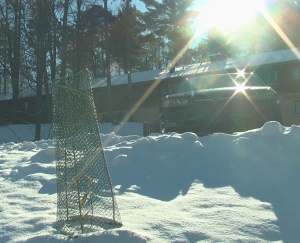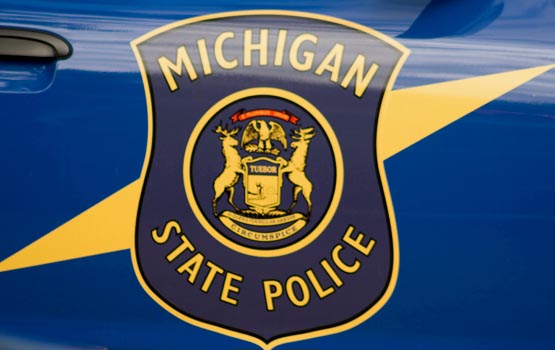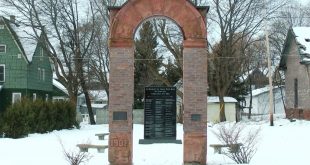Chestnuts–they are as much a part of the holidays as holly and mistletoe.
But if you’ve ever actually had a roasted chestnut, it was likely imported from overseas.
That’s because a blight in the early 1900’s virtually wiped out the great American Chestnut tree throughout the Appalachian range.
Though not its usual habitat, a few of these trees can be found in the Upper Peninsula, but they are rare and often underdeveloped.
There was one exception and it was in Houghton, before an expansion of the BHK Child Development Center claimed part of the forest, including a magnificent American Chestnut tree.
Michigan Tech’s Dean for the School of Forest Resources and Environmental Science Terry Sharik said, “It was really one of the finest forest grown American Chestnuts that I had seen, and I’ve seen a lot of them throughout the former range.”
 An effort is underway to repopulate the species.
An effort is underway to repopulate the species.
Michigan Tech’s School of Forest Resources and Environmental Science has nurtured 16 saplings and have been planting them at several locations throughout the area, including on the BHK Center grounds.
The trees will be closely monitored to see how well they do.
MTU Greenhouse & Soil Lab Manager Karena Schmidt said, “The soil here is just ideal. We have slightly acidic soil, it’s very loamy, and we are in a forested area so the soil conditions, I expect, are ideal for these trees. But, we’ll know by leaf color if there’s any deficiencies. So, I’ll be coming by to visit all the trees and be sure that they are healthy.”
It’s not known if these young trees will fall victim to the blight, but researchers are looking into splicing genes from the Chinese Chestnut, which would make future trees resistant to the disease.
If all goes well, chestnuts could become a locally grown delicacy.
Schmidt said, “We’re hoping that there’s enough enthusiasm and interest in the community that perhaps private individuals would also obtain trees and plant them in their own landscape, so this could be quite a revival for the American Chestnut.”
But if you’re looking to roast a Keweenaw Chestnut, you’re going to have to wait. The nuts from these trees won’t be ready for ten to twelve years.
 Keweenaw Report Your Source for Local News and Sports
Keweenaw Report Your Source for Local News and Sports





